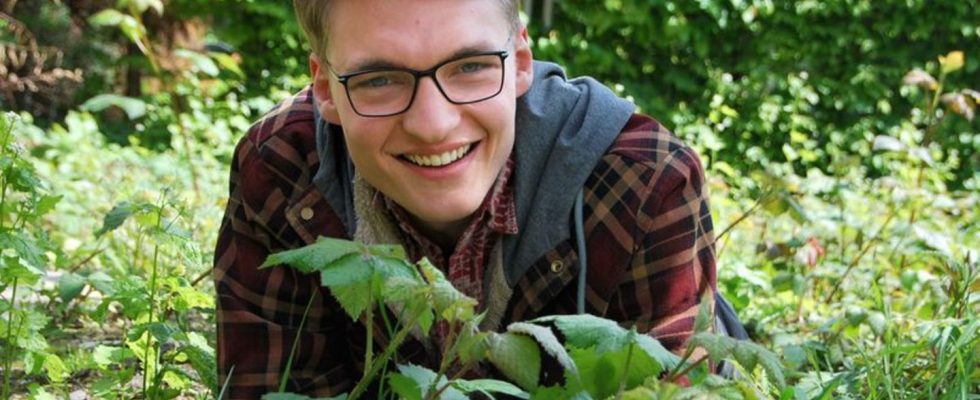Lots of followers
Berlin’s “Plantfluencer” promotes biodiversity
Robin König is also known as Robinga Schnögelrögel. photo
© Anja Sokolow/dpa-Zentralbild/dpa
The influencer Robinga Schnögelrögel specializes in butterflies, wild bees, etc. At the start of a nationwide project for more biodiversity, he reveals what is important.
He gossips about forsythia and insect hotels from the hardware store and shows in his videos where wild bees and other insects really feel at home. Hundreds of thousands follow Berlin “Plantfluencer” Robin König, known as Robinga Schnögelrögel, on social media. “Sharing your enthusiasm is the key to getting other people interested in the topic “To raise awareness of biodiversity,” said the 25-year-old on Thursday in Berlin.
The occasion was the start of the new project “Allotments for Biological Diversity” by the Federal Association of Allotment Garden Associations in Germany (BKD). The aim is to get allotment gardeners and private gardeners nationwide excited about gardening close to nature. “We want even more people all over Germany to be more interested in doing something more,” said coordinator Eva Foos.
Followers swap forsythia for more useful trees
Schnögelrögel was one of the speakers who passed on their practical knowledge. The way he conveys the topics is completely new and a huge win. It’s not just about clicks, he also has technical knowledge, said federal advisor Thomas Kleinworth. He actually notices a change in thinking, says Schnögelrögel. He repeatedly experiences that his followers pick up a spade and, for example, exchange forsythia for more useful trees such as cornelian cherries.
With regard to biodiversity, there is still “room for improvement” in allotment gardens, but especially in private gardens, according to expert Kleinworth. The association’s target group is primarily new allotment gardeners whose gardens still lack knowledge about biological diversity. There is often a beautiful new arbor there, and the terrace has also been made. The vegetable patch and some fruit trees were also laid out or planted according to regulations and the lawn was mowed. But more can be done for biodiversity.
“It doesn’t have to be wild growth,” emphasized Corinna Hölzel, pesticide expert at the German Federal Environment Agency and Nature Conservation Agency (BUND). But it helps to avoid pesticides, not mow the lawn so often and create a variety of structures, says Hölzel. A mixture of beds, wild perennials, fruit trees, trees or even wild corners where you “just don’t do anything” is advantageous.
The initiators of the project want to provide help with, among other things, an online educational offer, digital starter packages and consultation hours and a learning platform. The traditional work of gardening consultants in the associations should also be supported.
In Germany, more than half of wild bee species are endangered, primarily due to habitat loss and large-scale use of pesticides, said Hölzel. The 17 million private and allotment gardens in Germany offer great potential for more species protection. The project is a joint initiative of the (BKD), the Federal Association of German Schreberjugend and the BUND.

